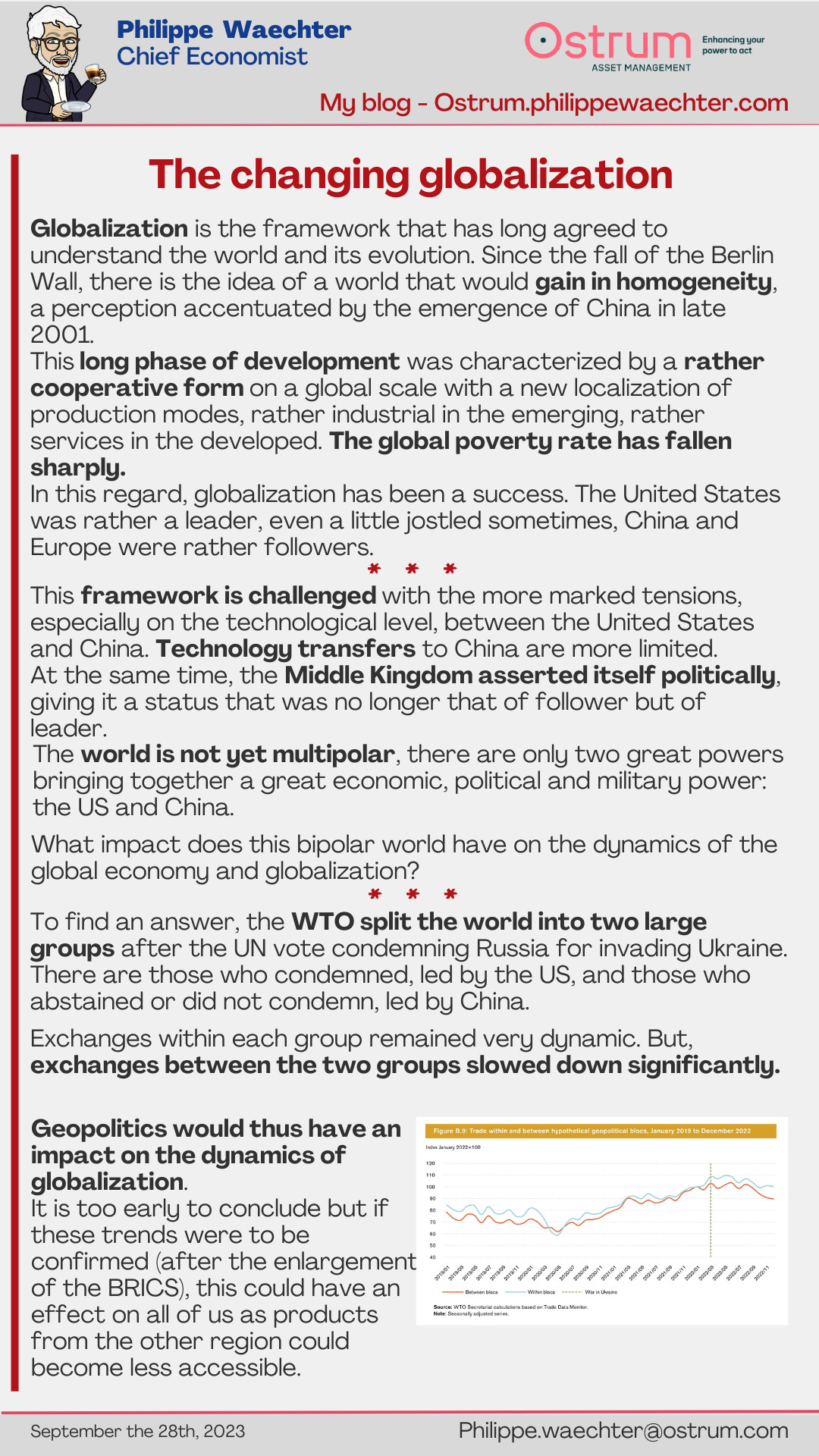Globalization is the framework that has long agreed to understand the world and its evolution.
Since the fall of the Berlin Wall, there is the idea of a world that would gain in homogeneity, a perception accentuated by the emergence of China in late 2001.
This long phase of development was characterized by a rather cooperative form on a global scale with a new localization of production modes, rather industrial in the emerging, rather services in the developed.
The global poverty rate has fallen sharply.
In this regard, globalization has been a success. The United States was rather a leader, even a little jostled sometimes, China and Europe were rather followers.
This framework is challenged with the more marked tensions, especially on the technological level, between the United States and China. Technology transfers to China are more limited.
At the same time, the Middle Kingdom asserted itself politically, giving it a status that was no longer that of follower but of leader.
The world is not yet multipolar, there are only two great powers bringing together a great economic, political and military power: the US and China.
What impact does this bipolar world have on the dynamics of the global economy and globalization?
To find an answer, the WTO split the world into two large groups after the UN vote condemning Russia for invading Ukraine. There are those who condemned, led by the US, and those who abstained or did not condemn, led by China.
Exchanges within each group remained very dynamic. But, trade between the two groups slowed down significantly.
Geopolitics would thus have an impact on the dynamics of globalization.
It is too early to conclude but if these trends were to be confirmed (after the enlargement of the BRICS), this could have an effect on all of us as products from the other region could become less accessible.



